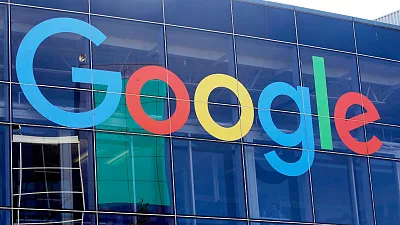Google faces antitrust scrutiny in Spain over news licensing – It is not surprising that Google has received antitrust attention in Spain over news licensing. In 2014, Spain passed a law that required news aggregators like Google to pay a fee to publishers for linking to their content. Google responded by shutting down its Google News service in Spain.
Spain’s competition authority, the CNMC, has added Google to its antitrust investigation to its stack. CNMC reported on Tuesday that it’s concerned about possible anti-competitive practices related to the licensing of news content by local publishers.
In a press release it said it is investigating “a series of practices that could involve an abuse of Google’s dominant position vis-à-vis the publishers of press publications and news agencies established in Spain” [NB: We’ve translated the text from Spanish with machine translation].
Also, read: Apple adds new emojis, web push notifications and more to latest iOS 16.4
“In particular, these practices would consist the possible imposition of unfair commercial conditions on the publishers of press publications and news agencies established in Spain for the exploitation of their content protected by intellectual property rights,” it also wrote. “On the other hand, the investigated behaviors would also include practices that would constitute acts of unfair competition that could distort free competition and affect the public interest.”
The competition authority stated that it is acting in response to a complaint filed by the Spanish Center for Reprographic Rights (also known as the Centro Espaol de Derechos Reprográficos or CEDRO).
We’ve reached out to all concerned.
ALso, read: Microsoft unleashes generative AI on cybersecurity
Google has already faced severe penalties in Europe for news licensing. Back in July 2021, France’s antitrust authority fined the tech giant over half a billion dollars for breaching an order to negotiate copyright fees with news publishers for the reuse of their content. That came after the EU agreed in 2019 to a copyright reform that extended IP to snippets of news content, requiring platforms like Google to negotiate with publishers.
Google’s news aggregation service was shut down in Spain in 2014 after the country passed legislation requiring Google to pay a licensing fee for news snippets. The previous fee regime was replaced by a requirement to negotiate with individual publishers under the EU copyright reform, and Google News reopened in Spain in June 2022.
Simultaneously, the company announced the launch of its News Showcase product in the country. Google launched News Showcase in the fall of 2020, as lawmakers in Europe and elsewhere focused on making it pay for news content reuse — creating a licensing vehicle it could use in the looming, inexorable negotiations with publishers.
It’s unclear whether the Spanish investigation will focus on Google’s News Showcase licensing arrangements or on copyright fee negotiations — or both.
While it is unclear what the outcome of Spain’s investigation into Google’s news licensing practices will be – the authority has up to 18 months to conduct the investigation – the preliminary information-gathering phase discovered “indications of possible infringement.”
Meanwhile, Germany’s antitrust authority has already pushed back on Mountain View’s practices in this area after beginning to investigate its news-related fine print in the summer of 2021. The German FCO’s regulatory focus on Google — which is currently armed with beefier powers to tackle Big Tech than other European countries (thanks to a 2021 update to competition law aimed squarely at digital giants) — has resulted in Google offering a series of concessions over how it operates News Showcase locally, including an offer not to include the showcasing of licensed content in general search results. (which is one trigger for antitrust concerns).
Because the offer is for Google to feature participants’ content to users across a number of touchpoints, the News Showcase product offers the prospect of increased visibility for participating publishers. However, given Google’s continued dominance of the Internet search and content discovery markets, this could be a disadvantage for publishers who do not pay Google (i.e., if it leads to their content being less visible in Google’s general Internet search).
Google has also attempted to combine negotiations with publishers over News Showcase with what are legally required negotiations over copyright fees under the pan-EU reform — something France’s watchdog slammed in its hefty enforcement in mid-2021.
















